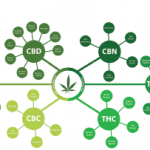PARIS (Reuters)—One person has been left brain dead and five others are in a serious condition after taking part in a clinical trial in western France of an experimental medicine from an unnamed drug company, the French health ministry said on Friday, Jan. 15.
The ministry did not say what the medicine was intended to be used for, but one person familiar with the situation said the drug was a cannabis-based painkiller.
The ministry said the six volunteers in Rennes, Brittany, had been in good health until taking the oral medication, which was developed by “a European laboratory.”
Britain’s GW Pharma, which markets an approved cannabis-derived treatment for spasticity caused by multiple sclerosis, said it was not involved in the trial.
“This test was carried out at a private facility specialized in carrying out clinical trials,” the ministry said in a statement.
The brain dead individual was admitted to hospital in Rennes on Monday. Other patients went in on Wednesday and Thursday.
All trials on the drug have now been suspended and all volunteers who have taken part in the trial are being called back.
A spokeswoman for the European Medicines Agency in London said it did not have full details of the case but that it was monitoring the situation.
Cases of early-stage clinical trials going badly wrong are rare but not unheard of. The last drug trial disaster in Europe occurred in 2006, when six healthy volunteers given an experimental drug in London ended up in intensive care.
One of them was described as looking like “the elephant man” after his head ballooned. Another lost his fingertips and toes.
In the initial so-called Phase I stage of clinical testing, a drug is given to healthy volunteers to see how it is handled by the body and what is the right dose to give to patients.
“Undertaking Phase 1 studies is highly specialist work,” said Daniel Hawcutt, a lecturer in clinical pharmacology at Britain’s University of Liverpool.
Medicines then go into larger Phase 2 and Phase 3 trials to assess their effectiveness and safety before they are finally approved for sale.



